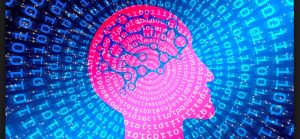 With its Communication of 8th April 2019, COM (2019) 168 final, entitled “Building trust in Human-Centric artificial intelligence”, The European Commission indicated the fundamental requirements which all artificial intelligence applications should comply with in order to be considered trustworthy. “People are at the centre. It is people who ask, this is the European approach”: these are the words of the European Commissioner for Digital Economy and Society, Mariya Gabriel, regarding Communication. In fact, as we can assume from the title itself, at the heart of the document there is the concept of “anthropocentric” artificial intelligence, that is AI which puts people, their well-being and values firmly at the centre of things.
With its Communication of 8th April 2019, COM (2019) 168 final, entitled “Building trust in Human-Centric artificial intelligence”, The European Commission indicated the fundamental requirements which all artificial intelligence applications should comply with in order to be considered trustworthy. “People are at the centre. It is people who ask, this is the European approach”: these are the words of the European Commissioner for Digital Economy and Society, Mariya Gabriel, regarding Communication. In fact, as we can assume from the title itself, at the heart of the document there is the concept of “anthropocentric” artificial intelligence, that is AI which puts people, their well-being and values firmly at the centre of things.
In particular, the principles identified in the Communication come from the AI high-level expert group set up by the European Commission with the primary aim of drafting AI ethics guidelines based on the existing regulatory framework, which should be applied by all developers, suppliers and users of AI.
There are seven key requirements: human agency and oversight, technical robustness and safety, privacy and data governance, transparency, diversity, non-discrimination and fairness, societal and environmental well-being and accountability.
Of these, the principle of privacy and data governance has major prominence. In fact, digital records of human behaviour may allow AI systems to infer not only individuals’ preferences, age and gender, but also their sexual orientation and religious beliefs or political views. According to the Commission, it is essential that individuals can trust the processing of personal data and to this end, it must be ensured they have full control over their own data to avoid data concerning them being used to harm them or discriminate against them.
In addition, the quality and integrity of the data sets used – the raw material for many AI applications – are fundamental to ensure the performance of AI systems. In fact, when data are gathered, they may reflect social biases or contain inaccuracies, errors and mistakes. This aspect must be addressed before using any given data set to train an AI system.
In the Communication the Commission also states its intention to bring the European Union’s anthropocentric approach to the global stage, strengthening cooperation with partners who share the same ideas and exploring how convergence with projects of ethical guidelines can be achieved with third countries (e.g. Japan, Canada, Singapore).
The Commission will shortly launch a targeted pilot phase which will help to gather structured feedback from stakeholders on the seven fundamental requirements. In early 2020, the AI high-level expert group will review and update the guidelines based on the evaluation of feedback received. Once all the various observations collected have been analysed, the Commission will assess the results and recommend potential next steps.













